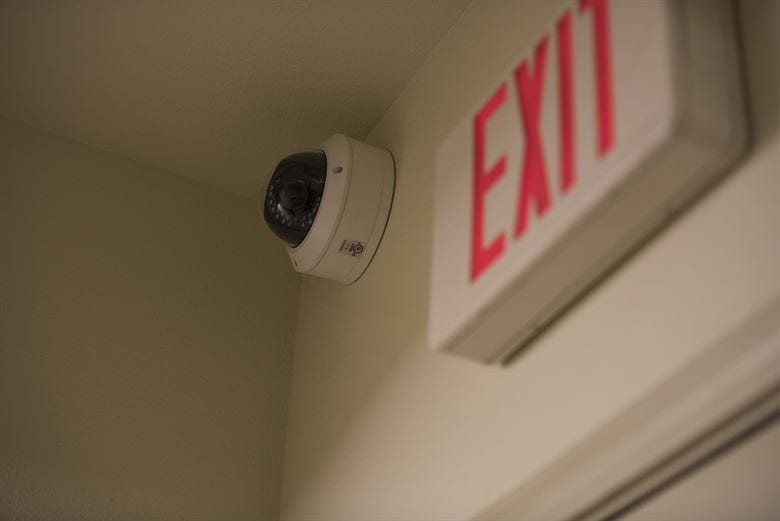On the whole, video cameras are a powerful tool to improve safety in both shared areas and private rooms of home care facilities.
Security measures are one of the main factors people look for when choosing a care home. Elderly and disabled people want to make sure their new living place has everything in place to allow them to relax and enjoy their time there. That’s why those in charge of managing these facilities must take all the necessary steps to ensure their residents’ safety and peace of mind. This includes installing security cameras in different areas of the property, as well as implementing effective access control and alarm systems.
In this article, we will discuss the risks care home residents are exposed to and the restrictions on video cameras imposed by the law. Owners and managers should also be aware of legal issues that may arise from the installation of video security systems, which this article will cover in detail.
Why CCTV cameras are necessary
For starters, care homes are exposed to the same safety concerns, which include burglaries, thefts, and assaults.
However, some risks are specific to care home residents. Based on statistics provided by the National Center for Victims of Crime, physical abuse was the most common issue reported by residents of these facilities, followed by resident-on-resident abuse, psychological abuse, gross neglect, sexual abuse, and financial exploitation.
The study also highlighted that 66% of victims were victims. It also found that those who had to stay in lower-quality care homes due to socioeconomic problems were more likely to be abuse victims. As for those doing the abuse, data shows that half of them are family members, followed by staff members and other residents.
These data clearly indicate the strong need for security measures in care homes.
Are care homes allowed to install video security cameras?
Cameras in shared areas are commonplace for care homes and healthcare organizations in general. These organizations must respect both national and state laws when it comes to installing cameras.
Generally speaking, home care facilities should respect laws concerning the expectation of privacy for both residents and workers. This means that cameras should typically not be added to private areas such as bedrooms, bathrooms, changing rooms, and locker rooms.
The National Labor Relations Act also prohibits any business, including home care facilities, from recording their employees when they engage in protected activities, such as discussions on working conditions or wages, rallies, demonstrations, and union activities.
Care homes should also respect the laws of their particular state. For example, Alabama, California, and Georgia prohibit the use of hidden cameras, while in some states, you will need the written consent of the recorded individuals to capture footage of certain activities.
Can residents install private security cameras?

Another interesting issue is the right of residents to install private security cameras in their own rooms. Due to unfortunate events that have happened over the years in care homes and other healthcare facilities, elderly people and their families may look for the additional piece of mind that a private camera can provide.
Currently, nine states explicitly allow the installation of video cameras in care homes. These are Texas, Ohio, Illinois, New Mexico, Oklahoma, Kansas, Minnesota, and Louisiana. If your care home is in one of these states, you can install a video camera in a private room, but you still need to follow the protocols set forth under your specific state’s laws.
As for those whose care homes are located in other states, installing a camera in a private room is possible only if you have received explicit authorization from the facility’s supervisor. If you install without informing the care home’s staff, you expose yourself to a potential lawsuit.
What other measures can you adopt to improve the security of your private room?
Private cameras are just one of the measures you can adopt to make your room more secure.
First, you should ensure powerful locks protect your room. Modern commercial remote door locks can offer a higher level of safety than traditional locks.
You should also consider installing windows locks or bars to make it more difficult for burglars and potential intruders to use your room’s windows as a point of entry.
Proper lighting can also go a long way in discouraging ill-intentioned individuals. Finally, you should make sure that computers and similar electronic devices located in your room are protected by strong passwords and modern anti-virus software.
A quick summary
On the whole, video cameras are a powerful tool to improve safety in both shared areas and private rooms of home care facilities.
These organizations can typically install video cameras on their premises, except in areas where residents and workers have an expectation of privacy (e.g., bathrooms or changing rooms ) or to record protected worker activities, such as discussions on wages or protests.
Nine states allow residents to install cameras in their private rooms, while for all other states, you will need explicit permission from the care home’s management.


Join the conversation!